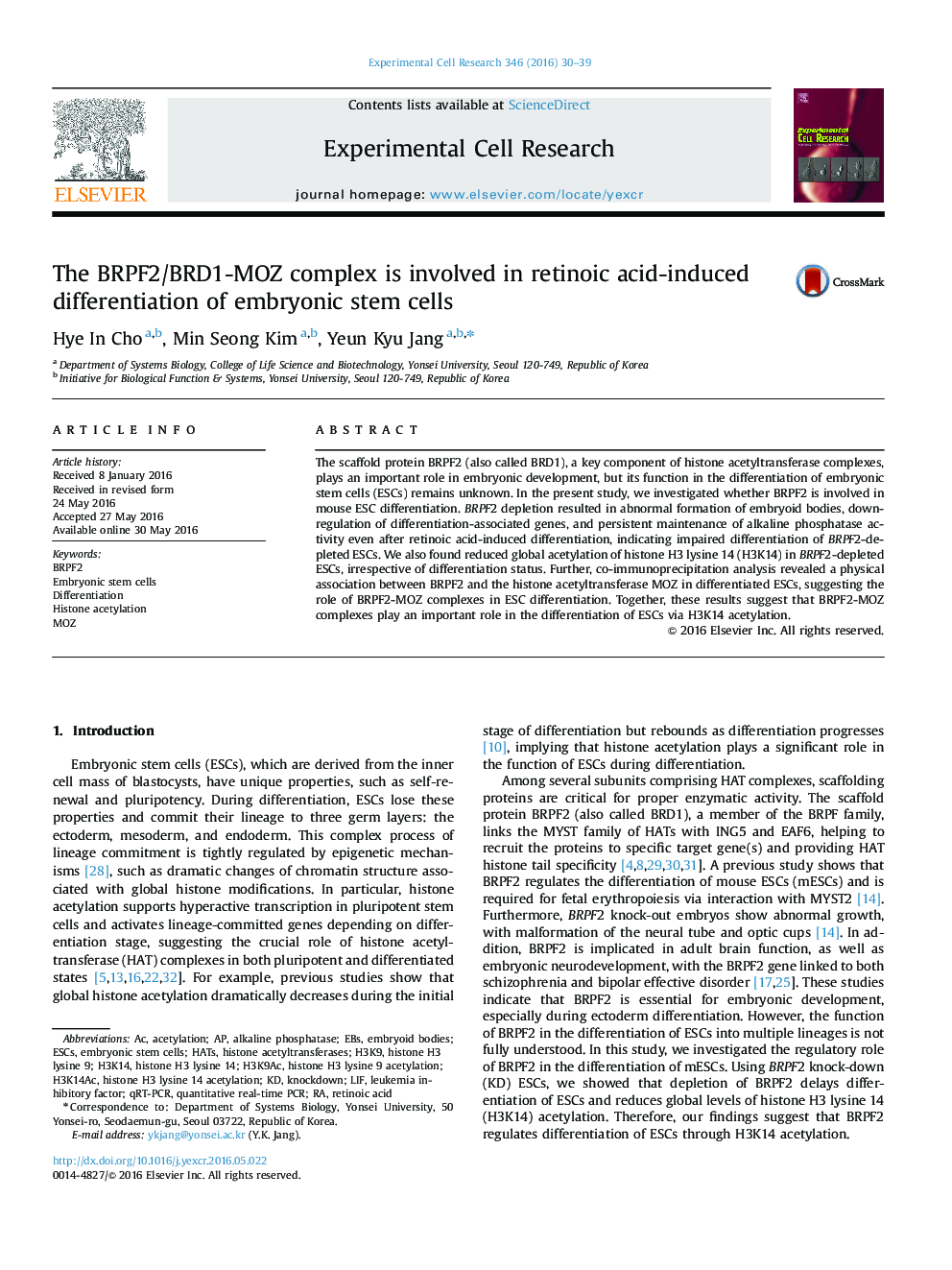| Article ID | Journal | Published Year | Pages | File Type |
|---|---|---|---|---|
| 2129937 | Experimental Cell Research | 2016 | 10 Pages |
•BRPF2 deficiency impairs the scheduled differentiation of ESCs.•BRPF2-mediated histone acetylation is required for both undifferentiated and differentiated states of ESCs.•BRPF2 plays an important role in the differentiation of ESCs via H3K14 acetylation.
The scaffold protein BRPF2 (also called BRD1), a key component of histone acetyltransferase complexes, plays an important role in embryonic development, but its function in the differentiation of embryonic stem cells (ESCs) remains unknown. In the present study, we investigated whether BRPF2 is involved in mouse ESC differentiation. BRPF2 depletion resulted in abnormal formation of embryoid bodies, downregulation of differentiation-associated genes, and persistent maintenance of alkaline phosphatase activity even after retinoic acid-induced differentiation, indicating impaired differentiation of BRPF2-depleted ESCs. We also found reduced global acetylation of histone H3 lysine 14 (H3K14) in BRPF2-depleted ESCs, irrespective of differentiation status. Further, co-immunoprecipitation analysis revealed a physical association between BRPF2 and the histone acetyltransferase MOZ in differentiated ESCs, suggesting the role of BRPF2-MOZ complexes in ESC differentiation. Together, these results suggest that BRPF2-MOZ complexes play an important role in the differentiation of ESCs via H3K14 acetylation.
